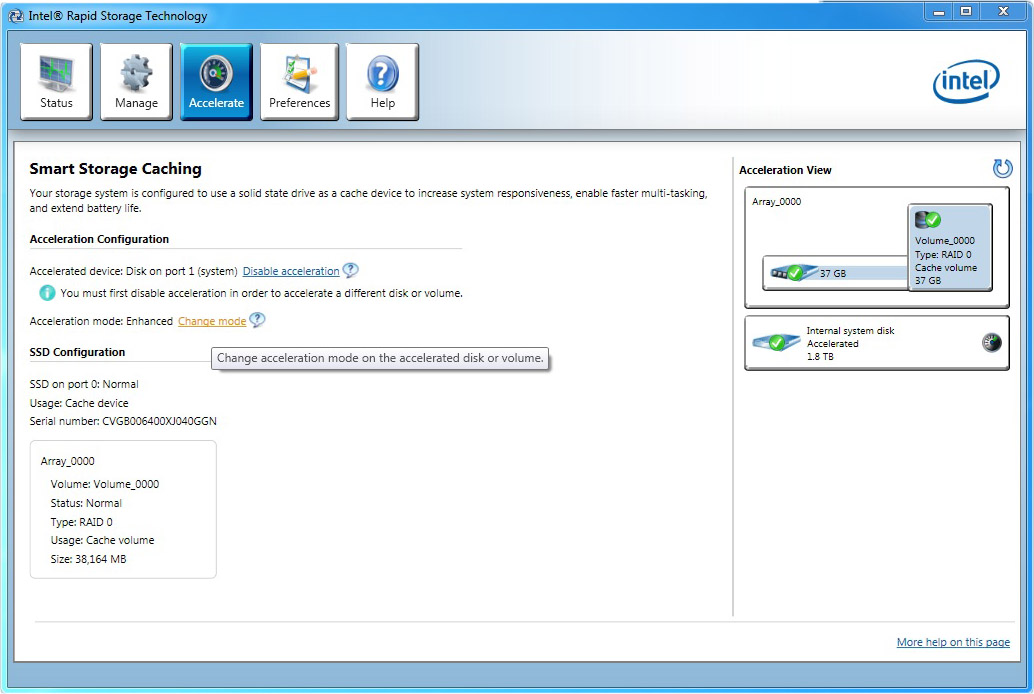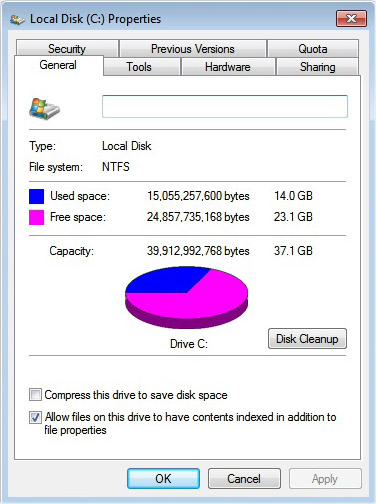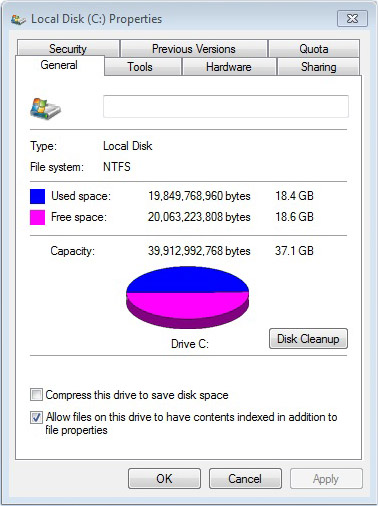Intel Z68 Express Chipset Preview: SSD Caching And Quick Sync
Enthusiasts were forced to hit the brakes on Sandy Bridge when motherboard vendors massively recalled platforms based on Cougar Point. We take a Z68 Express-based board for a spin to see if you should wait for Intel's true LGA 1155 enthusiast chipset.
SSD Caching: Enterprise Philosophies Drive Desktop Performance
Last year, at Intel’s Developer Forum, I talked to a company called GridIron Systems. It was showing off an appliance called the TurboCharger, which uses a ton of solid-state storage to help accelerate Oracle databases. The 30 TB warehouse it had on the show floor consisted of eight appliances and 36 hard drives in a single cabinet pushing 12 GB/s of sustained throughput and more than 1 million IOPS. Achieving those numbers previously required 3000 short-stroked hard drives. GridIron would likely be happy to go into depth on the hardware/software combination it uses to achieve those impressive figures. But at the appliance’s core, it’s essentially caching the most-used data in flash to keep it as close to system memory (smallest, fastest storage tier) as possible.
You can, of course, apply the same technology to less enterprise-oriented environments, though it loses some of its allure as you shift from SMB-class workloads to the desktop. Caching is super attractive to businesses because it doesn’t require big infrastructure modifications. You can put SSDs in front of a large array using an intelligent controller and the benefits get folded in automatically.
That’s not as big of a concern in the client space, where most folks can decide whether to install an app on an SSD or a conventional hard drive, depending on its performance profile. Nevertheless, Intel is enabling SSD caching on the enthusiast-oriented Z68 Express chipset, giving power users one more option for storage.
Intel reckons that, while an SSD boot drive facilitates great performance, data not on the solid-state storage sees no benefit. Caching done right ensures anything you access frequently enjoys a performance improvement.
Cache: What Is It Good For?
I’ve been playing with SSD caching for a while now. A couple of weeks ago, I asked some of the enthusiasts who like to talk tech on Twitter if they’d rather use a flash-based boot drive and hard disk or a hard drive accelerated by SSD caching. The unanimous vote was in favor of the separate boot drive. Enthusiasts like to have control, it seems, especially when that control yields superior performance.
Boot drives can get annoying, though. I consider an 80 GB Intel X25-M the absolute minimum-capacity SSD for a primary drive, and that’s a $175 investment. I’ve been there, run out of space, and moved on. My production workstation centers on a 160 GB drive—a $400 proposition. If your budget for storage is $200, you’re looking at either a 2 TB Barracuda XT or an 80 GB SSD, not both.
Get Tom's Hardware's best news and in-depth reviews, straight to your inbox.
The other way to go would be a 40 GB Intel X25-V for $100 and a 1.5 TB Barracuda for $70. But there’s no way I’d try to manage a 40 GB SSD as a boot drive. Windows 7 on its own eats of 14 GiB of the user-accessible 37.1 GiB. After getting drivers and PCMark Vantage installed, I was already down to 18.6 GiB. Throw Office and a game on there, or any other combination of frequently-used apps, and you’re pretty much tapped! Even then, everything installed to the hard drive is subject to the performance constraints of magnetic media.
Caching makes it possible to install everything on the 1.5 TB disk, and then transparently throw in the SSD to accelerate recently-read data. A 40 GB drive is ample for that task. As a result, the technology will actually appeal to the contingent of enthusiasts who don’t have enough cash for a large-enough SSD and user storage, but can still afford to get a foot in the door with a nice big hard drive and an affordably-small SSD.
Current page: SSD Caching: Enterprise Philosophies Drive Desktop Performance
Prev Page Z68 Express Makes Its Debut Next Page Intel Makes Caching Easy-
aliened Nice. Thanks for the quick heads up, I was just starting to build my new rig but now that I read this I'm going to wait for the Z68 MOBOs :DReply -
compton I am one of those ssd+hdd users who prefer manually managing the drives. Recently I discovered some of the older ssd + hdd cache devices(Silverstone made one). I wasn't impressed. However,I could see the Intel cache set-up as being advantageous for me. Why? I have a boot SSD, large storage HDD, and a third SSD. I could still boot from the boot drive, then use the second SSD and HDD together. I like that idea enough to wait for the Z chipset before I ditch the H chipset.Reply -
cangelini compton, problem with that SilverStone unit was that it didn't have any intelligence built-in--it was simply mapping the first sectors of the hard drive, if what I remember reading a year ago was right...Reply -
Crashman Excellent Work, Mr Angelini! Now it's my job to make sure the motherboard manufacturers follow through!Reply
-Your Adversarial Colleague -
haplo602 wow ...Reply
I am thinking what is more restricting ... a ZFS supporting OS or the stupid Intel list for SSD caching.
The only impresive part of Sandy Bridge is the single-threaded performance. Everything else is a disaster (chipsets, QuickSync restrictions, price, linux drivers and bugs etc.) or was already available in previous generations.
Waiting on AMD Bulldozer and Llano ... I just hope those 2 won't be similar disasters. -
Crashman haplo602wow ... I am thinking what is more restricting ... a ZFS supporting OS or the stupid Intel list for SSD caching.The only impresive part of Sandy Bridge is the single-threaded performance. Everything else is a disaster (chipsets, QuickSync restrictions, price, linux drivers and bugs etc.) or was already available in previous generations.Waiting on AMD Bulldozer and Llano ... I just hope those 2 won't be similar disasters.In regards to Linux, isn't that like saying "Toyotas are junk because they're always dirty"? I mean, Linux is maintained by its "owners".Reply
-
So would ssd caching work on a raid 0 setup with 2 samsung spinpoint F3's or would this add an additional risky element without much performance gain?...or say a raid 1 where I have backup...would it cache both drives or 1?..Sorry new to this and also waiting for a z68.Reply
-
cangelini tradeshowhoundSo would ssd caching work on a raid 0 setup with 2 samsung spinpoint F3's or would this add an additional risky element without much performance gain?...or say a raid 1 where I have backup...would it cache both drives or 1?..Sorry new to this and also waiting for a z68.Reply
Yes, so long as all members of the array are hard disks.



